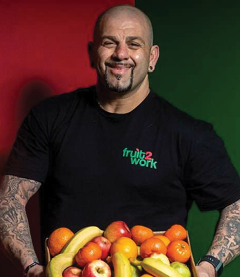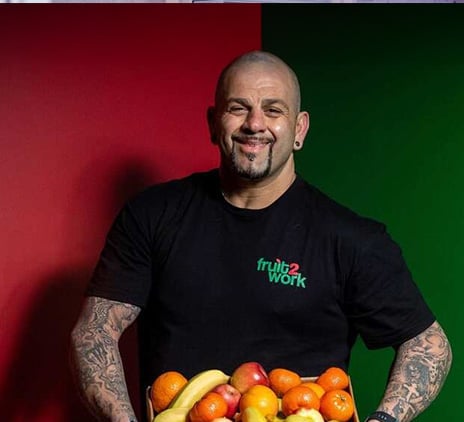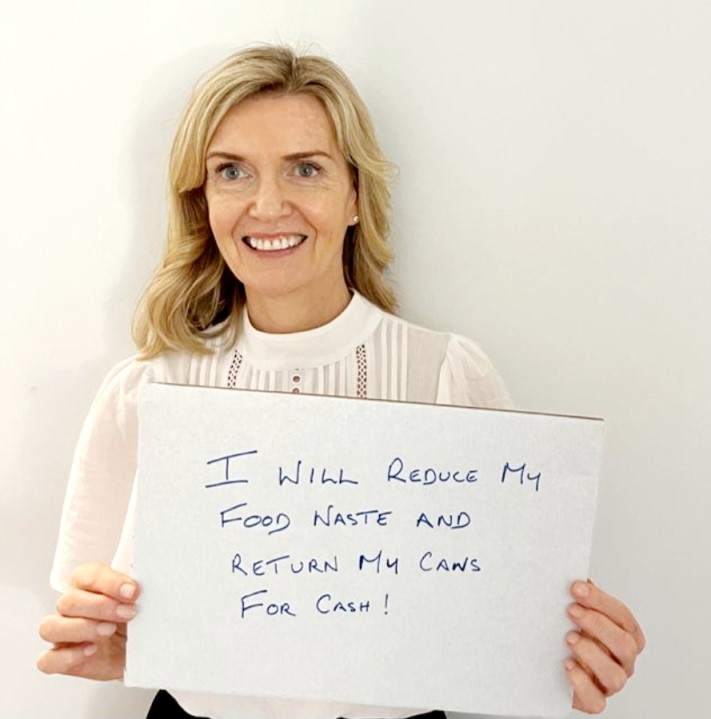- Market services
- Indigenous advisory
-
Compliance audits & reviews
Our audit team undertakes the complete range of audits required of Australian accounting laws to help you to help you meet obligations or fulfil best practice procedures.
-
Audit quality
We are fiercely dedicated to quality, use proven and globally tested audit methodologies, and invest in technology and innovation.
-
Financial reporting advisory
Our financial reporting advisory team helps you understand changes in accounting standards, develop strategies and communicate with your stakeholders.
-
Audit advisory
Grant Thornton’s audit advisory team works alongside our clients, providing a full range of reviews and audits required of your business.

-
Corporate tax & advisory
We provide comprehensive corporate tax and advisory service across the full spectrum of the corporate tax process.
-
Private business tax & advisory
We work with private businesses and their leaders on all their business tax and advisory needs.
-
Tax compliance
We work alongside clients to manage all tax compliance needs and identify potential compliance or tax risk issues.
-
Employment tax
We help clients understand and address their employment tax obligations to ensure compliance and optimal tax positioning for their business and employees.
-
International tax
We understand what it means to manage tax issues across multiple jurisdictions, and create effective strategies to address complex challenges.
-
GST, stamp duty & indirect tax
Our deep technical knowledge and practical experience means we can help you manage and minimise the impact of GST and indirect tax, like stamp duty.
-
Tax law
Our team – which includes tax lawyers – helps you understand and implement regulatory requirements for your business.
-
Innovation Incentives
Our national team has extensive experience navigating all aspects of the government grants and research and development tax incentives.
-
Transfer pricing
Transfer pricing is one of the most challenging tax issues. We help clients with all their transfer pricing requirements.
-
Tax digital consulting
We analyse high-volume and unstructured data from multiple sources from our clients to give them actionable insights for complex business problems.
-
Corporate simplification
We provide corporate simplification and managed wind-down advice to help streamline and further improve your business.
-
Superannuation and SMSF
Increasingly, Australians are seeing the benefits, advantages and flexibility of taking control of their own superannuation and retirement planning.

-
Payroll consulting & Award compliance
Many organisations are grappling with a myriad of employee agreements and obligations, resulting in a wide variety of payments to their people.
-
Cyber resilience
The spectrum of cyber risks and threats is now so significant that simply addressing cybersecurity on its own isn’t enough.
-
Internal audit
We provide independent oversight and review of your organisation's control environments to manage key risks, inform good decision-making and improve performance.
-
Financial crime
Our team helps clients navigate and meet their obligations to mitigate crime as well as develop and implement their risk management strategies.
-
Consumer Data Right
Consumer Data Right (CDR) aims to provide Australians with more control over how their data is used and disclosed.
-
Risk management
We enable our clients to achieve their strategic objectives, fulfil their purpose and live their values supported by effective and appropriate risk management.
-
Controls assurance
In Australia, as with other developed economies, regulatory and market expectations regarding corporate transparency continue to increase.
-
Governance
Through fit for purpose governance we enable our clients to make the appropriate decisions on a timely basis.
-
Regulatory compliance
We enable our clients to navigate and meet their regulatory and compliance obligations.

-
Forensic accounting and dispute advisory
Our team advises at all stages of a litigation dispute, taking an independent view while gathering and reviewing evidence and contributing to expert reports.
-
Investigations
Our licensed forensic investigators with domestic and international experience deliver high quality results in the jurisdictions in which you operate.
-
Digital forensics
Our digital forensic experts identify, preserve and analyse data in the context of reputation and regulatory enforcement issues for investigations, legal or administrative proceedings.
-
eDiscovery
In a data-driven economy, data enables commercial and economic growth, innovation, and social benefit.
-
Asset tracing investigations
Our team of specialist forensic accountants and investigators have extensive experience in tracing assets and the flow of funds.

-
Mergers and acquisitions
Our mergers and acquisitions specialists guide you through the whole process to get the deal done and lay the groundwork for long-term success.
-
Acquisition search & strategy
We help clients identify, finance, perform due diligence and execute acquisitions to maximise the growth opportunities of your business.
-
Selling a business
Our M&A team works with clients to achieve a full or partial sale of their business, to ensure achievement of strategic ambitions and optimal outcomes for stakeholders.
-
Operational deal services
Our operational deal services team helps to ensure the greatest possible outcome and value is gained through post merger integration or post acquisition integration.
-
Transaction advisory
Our transaction advisory services support our clients to make informed investment decisions through robust financial due diligence.
-
Business valuations
We use our expertise and unique and in-depth methodology to undertake business valuations to help clients meet strategic goals.
-
Tax in mergers & acquisition
We provide expert advice for all M&A taxation aspects to ensure you meet all obligations and are optimally positioned.

-
Corporate finance
We provide effective and strategic corporate finance services across all stages of investments and transactions so clients can better manage costs and maximise returns.
-
Debt advisory
We work closely with clients and lenders to provide holistic debt advisory services so you can raise or manage existing debt to meet your strategic goals.
-
Working capital optimisation
Our proven methodology identifies opportunities to improve your processes and optimise working capital, and we work with to implement changes and monitor their effectiveness.
-
Capital markets
Our team has significant experience in capital markets and helps across every phase of the IPO process.
-
Debt and project finance raising
Backed by our experience accessing full range of available funding types, we work with clients to develop and implement capital raising strategies.
-
Private equity
We provide advice in accessing private equity capital.
-
Financial modelling
Our financial modelling advisory team provides strategic, economic, financial and valuation advice for project types and sizes.
-
Payments advisory
We provide merchants-focused payments advice on all aspects of payment processes and technologies.

-
Voluntary administration & DOCA
We help businesses considering or in voluntary administration to achieve best possible outcomes.
-
Corporate insolvency & liquidation
We help clients facing corporate insolvency to undertake the liquidation process to achieve a fair and orderly company wind up.
-
Complex and international insolvency
As corporate finance specialists, Grant Thornton can help you with raising equity, listings, corporate structuring and compliance.
-
Safe Harbour advisory
Our Safe Harbour Advisory helps directors address requirements for Safe Harbour protection and business turnaround.
-
Bankruptcy and personal insolvency
We help clients make informed choices around bankruptcy and personal insolvency to ensure the best personal and stakeholder outcome.
-
Creditor advisory services
Our credit advisory services team works provides clients with credit management assistance and credit advice to recapture otherwise lost value.
-
Small business restructuring process
We provide expert advice and guidance for businesses that may need to enter or are currently in small business restructuring process.
-
Asset tracing investigations
Our team of specialist forensic accountants and investigators have extensive experience in tracing assets and the flow of funds.

-
Independent business reviews
Does your company need a health check? Grant Thornton’s expert team can help you get to the heart of your issues to drive sustainable growth.
-
Commercial performance
We help clients improve commercial performance, profitability and address challenges after internal or external triggers require a major business model shift.
-
Safe Harbour advisory
Our Safe Harbour advisory helps directors address requirements for Safe Harbour protection and business turnaround.
-
Corporate simplification
We provide corporate simplification and managed wind-down advice to help streamline and further improve your business.
-
Director advisory services
We provide strategic director advisory services in times of business distress to help directors navigate issues and protect their company and themselves from liability.
-
Debt advisory
We work closely with clients and lenders to provide holistic debt advisory services so you can raise or manage existing debt to meet your strategic goals.

-
Business planning & strategy
Our clients can access business planning and strategy advice through our value add business strategy sessions.
-
Private business company secretarial services
We provide company secretarial services and expert advice for private businesses on all company secretarial matters.
-
Outsourced accounting services
We act as a third-party partner to international businesses looking to invest in Australia on your day-to-day finance and accounting needs.
-
Superannuation and SMSF
We provide SMSF advisory services across all aspects of superannuation and associated tax laws to help you protect and grow your wealth.
-
Management reporting
We help you build comprehensive management reporting so that you have key insights as your business grows and changes.
-
Financial reporting
We help with all financial reporting needs, including set up, scaling up, spotting issues and improving efficiency.
-
Forecasting & budgeting
We help you build and maintain a business forecasting and budgeting model for ongoing insights about your business.
-
ATO audit support
Our team of experts provide ATO audit support across the whole process to ensure ATO requirements are met.
-
Family business consulting
Our family business consulting team works with family businesses on running their businesses for continued future success.
-
Private business taxation and structuring
We help private business leaders efficiently structure their organisation for optimal operation and tax compliance.
-
Outsourced CFO services
Our outsourced CFO services provide a full suite of CFO, tax and finance services and advice to help clients manage risk, optimise operations and grow.
-
ESG & sustainability reporting
There is a growing demand for organisations to provide transparency on their commitment to sustainability and disclosure of the nonfinancial impacts of their business activities. Commonly, the responsibility for sustainability and ESG reporting is landing with CFOs and finance teams, requiring a reassessment of a range of reporting processes and controls.
-
ESG & sustainability advisory
With the ESG and sustainability landscape continuing to evolve, we are focussed on helping your business to understand what ESG and sustainability represents and the opportunities and challenges it can provide.

-
Management consulting
Our management consulting services team helps you to plan and implement the right strategy to deliver sustainable growth.
-
Financial consulting
We provide financial consulting services to keep your business running so you focus on your clients and reaching strategic goals.

-
China practice
The investment opportunities between Australia and China are well established yet, in recent years, have also diversified.
-
Japan practice
The trading partnership between Japan and Australia is long-standing and increasingly important to both countries’ economies.
-
India practice
It’s an exciting time for Indian and Australian businesses looking to each jurisdiction as part of their growth ambitions.
-
Singapore practice
Our Singapore Practice works alongside Singaporean companies to achieve growth through investment and market expansion into Australia.

-
 Insight Identify your opportunities in the complex landscape of fuel tax creditsThe landscape of fuel tax credits (FTC) is constantly evolving due to ongoing economic and technological developments. This dynamic environment presents both challenges and opportunities for businesses with significant fuel consumption.
Insight Identify your opportunities in the complex landscape of fuel tax creditsThe landscape of fuel tax credits (FTC) is constantly evolving due to ongoing economic and technological developments. This dynamic environment presents both challenges and opportunities for businesses with significant fuel consumption. -
 Client Alert March 2024 Update: NSW Grants for Net Zero Manufacturing and Physical SciencesSome major NSW grant programs have been announced, supporting projects in clean technology innovation, low carbon product manufacturing, renewable manufacturing and physical sciences.
Client Alert March 2024 Update: NSW Grants for Net Zero Manufacturing and Physical SciencesSome major NSW grant programs have been announced, supporting projects in clean technology innovation, low carbon product manufacturing, renewable manufacturing and physical sciences. -
 Insight Navigating a complex Agribusiness, Food and Beverage deals landscape in 2024Despite a 14% global decline in Agribusiness, Food, and Beverage M&A deals, 2024 shows promise with expected global interest rate stabilisation. Given the sector's role in global sustainability, businesses can tap into opportunities in food manufacturing and waste minimisation.
Insight Navigating a complex Agribusiness, Food and Beverage deals landscape in 2024Despite a 14% global decline in Agribusiness, Food, and Beverage M&A deals, 2024 shows promise with expected global interest rate stabilisation. Given the sector's role in global sustainability, businesses can tap into opportunities in food manufacturing and waste minimisation. -
 Client Alert Grants: February 2024Businesses should be aware of the numerous grant opportunities available from Commonwealth, State, and private sources. These grants could be the key to making manufacturing, agriculture, and green economy projects a reality.
Client Alert Grants: February 2024Businesses should be aware of the numerous grant opportunities available from Commonwealth, State, and private sources. These grants could be the key to making manufacturing, agriculture, and green economy projects a reality.
-
Renewable Energy
Transformation through energy transition

-
Business Planning and Strategy
Having an honest, broad-reaching and thought-provoking discussion with a skilled, independent advisor can be the catalyst for clarity – a direction to take your business forward and an understanding of what is key to success.

-
Flexibility & benefits
The compelling client experience we’re passionate about creating at Grant Thornton can only be achieved through our people. We’ll encourage you to influence how, when and where you work, and take control of your time.
-
Your career development
At Grant Thornton, we strive to create a culture of continuous learning and growth. Throughout every stage of your career, you’ll to be encouraged and supported to seize opportunities and reach your full potential.
-
Diversity & inclusion
To be able to reach your remarkable, we understand that you need to feel connected and respected as your authentic self – so we listen and strive for deeper understanding of what belonging means.
-
In the community
We’re passionate about making a difference in our communities. Through our sustainability and community engagement initiatives, we aim to contribute to society by creating lasting benefits that empower others to thrive.
-
Graduate opportunities
As a new graduate, we aim to provide you more than just your ‘traditional’ graduate program; instead we kick start your career as an Associate and support you to turn theory into practice.
-
Vacation program
Our vacation experience program will give you the opportunity to begin your career well before you finish your degree.
-
The application process
Applying is simple! Find out more about each stage of the recruitment process here.
-
FAQs
Got questions about applying? Explore frequently asked questions about our early careers programs.
-
Our services lines
Learn about our services at Grant Thornton
-
Current opportunities
Current opportunities
-
Remarkable people
Our team members share their remarkable career journeys and experiences of working at Grant Thornton.
-
Working at Grant Thornton
Explore our culture, benefits and ways we support you in your career.
-
Current opportunities
Positions available.
-
Contact us
Get in touch

The General Manager of Fruit2Work went from having a family, home, and full-time job, to finding himself in prison, facing the daunting prospect of reintegration into society with a criminal record once completing his sentence. Today, he runs Fruit2Work, a social enterprise offering employment opportunities to ex-offenders in fruit and milk packing for workplaces across Melbourne, Geelong, and now Brisbane.
In this episode, Simon reveals how he was affected by the justice system, the challenge of trying to transition back into the workforce – a problem that Fruit2Work is trying to solve one criminal offender at a time – and the most remarkable advice he’s received.
Available on Apple Podcasts, Spotify or within your browser.
For more information on Fruit2Work, click here.
Rebecca Archer
Welcome to The Remarkables – Grant Thornton’s podcast that seeks to uncover stories about remarkable people doing incredible things for their community, bettering the world for future generations and inspiring others to do the same.
Please note that this episode will cover mental health and suicide themes, which can be distressing. If you need support, please go to beyondblue.org or, contact Lifeline on 13 11 14 for 24 hour free counselling in Australia.
I’m Rebecca Archer, and today we’re joined by Simon Fenech – General Manager of Fruit2Work. Fruit2Work is a social enterprise that helps criminal offenders transition back into society by providing employment opportunities in packing and supplying fruit and milk to workplaces in Melbourne, Geelong and, most recently, Brisbane.
Welcome Simon – thank you for joining us on the podcast today!
Simon Fenech
Thanks for having me on board.
Rebecca Archer
Just before we begin, we love asking our guests what they're reading or listening to or watching at the moment.
Simon Fenech
I love all sorts of crime shows and crime shows and crime podcasts. Given my history, you could probably understand why.
Rebecca Archer
Any in particular that you would recommend?
Simon Fenech
World's Toughest Prisons, and Netflix have actually just released a couple new episodes, so love it.
Rebecca Archer
All right, well, let's get into the nitty gritty of what we're talking about today now Simon. So, tell us about Fruit2Work and how it all started.
Simon Fenech
Fruit2Work does what it says on the label. It delivers fruit to workplaces, but what it really does, is it creates meaningful employment for people who are impacted by the justice system.
The concept was started by two young guys who were doing a project for the Foundations for Young Australians. One of them was a consultant, and the other one was a psychologist at Bowen Prison, and the psychologist would work with people for years, and, you know, that he would hear about their hopes and dreams, about where they wanted to go when they were released from prison, only to see him come back to prison a short time later. And every time he asks the question, what are you doing back here? The two common answers were – which is still to this day a very common problem – I couldn't get a roof over my head, and I couldn't get a job.
Now they fall hand in hand. So, if you were sleeping in a gutter, you are not going to get a job, and if you haven't got a job, you are not going to put a roof over your head. So, they came up with this concept that they would sell fruit to their uncles and their aunties and their whole network and employ one person. Well, they did that. They were successful; they exhausted their efforts, and after twelve months, they wanted to go back to their day job.
So, they sold it to a charity called Whitelion. Whitelion are a charity that works with highly disadvantaged youth. The owner of Fruit2Work now, Rob Brown,he was the CEO of a social enterprise at the time, and twelve months in Whitelion said this model does not work with youth. They wanted to break Fruit2Work up and sell it off. And Rob said, no, I will purchase Fruit2Work off you guys. Rob has got great commercial sense. He's an entrepreneur at heart and he bought Fruit2Work, and I had joined about six months into the Fruit2Work journey, and he returned it from a $200,000 a year business, and this year we'll turn over close to $9m.
Rebecca Archer
That is outstanding. So, Simon, for you personally, what drove you to work in this particular space?
Simon Fenech
Not only did Fruit2Work change my life, but I think it saved my life. I spent time in prison, and I can go into my story if you want to hear a little bit of my story.
So, I was a very normal human being, or as normal as – family, wife and kids, beautiful house, drove Mercedes Benz, rode a Harley Davidson. I was injured in a workplace accident where I was struck in the back of the forklift, damaging my lower discs. So, I went from being fit as a fiddle; I was an Australian Champion Kickboxer to almost being wheelchair bound. The doctors prescribed me all these different medications, and nothing really worked.
Cut a long story short, I started using methamphetamines. I threw the doctor's medications in the bin, and I substituted methamphetamines for the doctor's medication. I opened myself into a whole new world; a whole world of people I had never dealt with, a whole world of crime. My habit went from $100 a day to $1,000 a day. I was dealing ice; I was shot, and I was stabbed while using ice.
My father died, my mother died, my brother died, and my daughter died. I had five suicide attempts, didn't want to be here anymore, and in the end, I ended up in prison. So, I did a twelve-month prison sentence. It was probably the best thing that could have happened to me at the time.
I wasn't offered any sort of rehabilitation. I rehabilitated myself whilst I was in prison. Now there are plenty of drugs in jail, but I chose to do something different, and I did as many programs and courses to better myself whilst I was incarcerated, but when you come home, coming home isn't as easy as people think. I wasn't released a free man. I still had to serve an 18-month corrections order, which meant I had to do a drug and alcohol program, a mental health program, men's behaviour change program. I had to see my caseworker once a week and I had to do 380 hours of community work.
And I had to do that as well as try and get a job. When I was released from prison, I had nowhere to live because I had burnt all my bridges. So the jail had organised a boarding house for me and the boarding house was a drug den. My brother picked me up from the train station to pick his boarding house. I knocked on the door and the lady who answered the door was off her face on heroin. She unlocked these three padlocks on the door and took me to my room. She opened the door and the room stunk of urine. The guy in the room next door urinates on the wall, and it went into my carpet my accommodation was just a mattress and base. No sheets, no blankets, no pillow. And the mattress had a big dirty brown blood patch on it and there was three syringes on the carpet, and this is where I was supposed to start my new life. It was not as easy as I had anticipated, and I begged my brother not to let me stay there.
He made some boundaries. He helped me plenty, but he made some boundaries from the start that I could not live with him. He's a Justice of the Peace; I was a drug addict. Anyway, he got me into a better boarding house. It was a drug free boarding house, and now I had a roof over my head, which is what I really needed. But then I needed a job, and I needed a job that I was able to juggle in with my parole requirements, my corrections order. That was not easy.
On top of every job I applied for, as soon as they saw a criminal record, I would never hear back. So the boarding house was $200 a week rent; Cenrelink was $520 a fortnight. I was surviving off $60 a week. After the first week I was generally broke and hungry and that's where Fruit2Work came in. I went to see my case worker, corrections one day, and said, hey, I need some help because I'm thinking about going back to doing what I used to do, and I really don't want to go back to jail, and I don't want to end up dead and I want to get my kids back in my life.
And by fluke, she pulls out a flyer out of the rubbish bin. And it was from free to work and it said, we are seeking a delivery driver and if you've got criminal history, you are encouraged to apply. So, I did; I applied, I got the job. It was starting at 1:30 am. It was two days a week, but it worked around my corrections order and that opportunity was life changing for me.
Going home, wearing a high-vis uniform made me not feel like a junkie anymore, made me not feel like an ex-offender. I would go into offices like Grant Thornton and deliver fruit and milk and I was received like a normal human being and that is confidence building. That sort of reception made me feel like a normal member of the community.
I was given keys to a van and I was entrusted with a fuel card and a Coles card. I've seen a lot of people who were walking in my shoes, joining the business, struggling, and I was able to help. Within twelve months, I became the Operations Manager. I was the Operations Manager at Fruit2Work for four and a half years, and today I'm one of the Directors and I'm involved in every decision that the business makes. I'm currently in Queensland, setting up Queensland. More importantly, today I have a beautiful fiancé, we’ve built a brand new house, I've got full custody of my youngest son and my youngest son, he calls me his hero and he tells me that I'm the best dad in the world.
Now, I'm not the best dad in the world, but I'm the best dad in the world to him, and it was all because somebody gave me a chance. This business that delivers fruit and milk, this business changes people's lives. It has changed mine and I have watched it change over 130 people so far that we have transitioned back into the community as returning citizens. We've been very successful in the eight years of operation. Nobody that has joined Fruit2Work has gone back to prison in eight years. So, one in two people being released from prison today will go back to jail. Fruit2Work has had not one person go back within eight years.
Rebecca Archer
My goodness. That's incredible. Simon, I guess you've sort of outlined what the organisation has been established to achieve, but what's at the heart of it? What is this organisation really striving to do for people who are coming back from prison and who've been dealt with in the justice system?
Simon Fenech
It's all about redemption. People can make mistakes. People do make mistakes. When I was in prison, I met four different types of people. I believe there's four different types of people. There are people who just make stupid mistakes. There are people, any wonder they end up in prison because the way that they were brought up, they were destined for jail. And then there are people who are just bad and should stay in prison and they should throw away the key.
But for the people that make mistakes or people who don't know any better, they deserve another chance at life. Fruit2Work isn't just an employment pathway. What we do here is we have support for people coming out of the system. We help them with their drug and alcohol issues. They have to be 100 per cent drug free. We all do regular drug tests. We run a program called Building a Better You, which is all about building a better you. It's 24 modules dealing with loss, worry, rejection, addiction. We have a financial model, which helps people with their mygov account, set budgets. So, it's not just employment. It's all about changing your life, and we only employ people who are serious about creating change for themselves.
Rebecca Archer
What would a typical day in the life look like for someone who's employed by Fruit2Work?
Simon Fenech
Very early starts and because Brisbane is new, I've been out on the road myself today, so we start at 3:00 am. It's a sense of community. It's a place where they feel safe. There's no judgment; there is no stigma. People don't have to hide who they are. They don't wear it like a badge of honour, but what they do wear like a badge of honor is what they want to do different.
So often you will hear about the guys’ weekends, you know, reintegrating with their children, reintegrating with their family, speaking to long lost relatives. On long weekends, I get photos of guys and girls at their campsites. They're actually taking their kids away, where previously they've spent their time in prison. So, they come in, they do their day. If they need to speak to the psychologist, we've got a forensic psychologist on board as well to reach out for some extra support. They do that. We put extra training into our guys. The first couple of weeks, guys and girls really struggle because generally they're broke. They'll come to work with no lunch, and they will be too proud to tell you that they are broke.
Rebecca Archer
From a logistical sort of standpoint, where do you source the fruit from, and how do you get it out to the businesses that you're supplying.
Simon Fenech
All our fruit comes from a provider called Simon & George. Simon & George are a national fruit supplier, but the fruit for Victoria will come from the Epping markets. For Queensland, it will come from the Rocklea markets. We try and keep the money for Victoria in Victoria and the same for Queensland. So, we try and keep the money from each state in each state so they can succeed.
Rebecca Archer
In terms of that sort of very early start that you were referring to, what time would people sort of knock off? And once they've finished work, what does their life look like and what sort of are we looking at in terms of how many shifts someone might do each week?
Simon Fenech
How we created Fruit2Work was it works around people's parole requirements. When people come home, it is next to impossible for them to end up in a full-time job and earn a full-time wage because they have got all these hurdles that they still have to jump through. So ideally, when people come home, their parole requirements or corrections orders are quite intensive, and as time goes on, it starts to back off. As those orders back off, we increase their hours. So ideally, they might start on two days a week. They will start at 3:00 am, and that will be finished by about lunchtime.
Ideally, they can go to any appointments they do after lunch, or they might want to put themselves to bed since they’ve have been up since 1:30 in the morning. That's pretty much how it works. So, we'll build them up from two days to five days, and after six or twelve months, when the individual is kicking goals in their own private rental, got their kids back in their lives, and able to hold down a full-time job, we transition them into full time employment elsewhere, and we bring more people through. So, we have transition conversations the whole way through. So, we get to start to think about what their life looks like outside of Fruit2Work. And once their time is up and they're ready to go, we start to back off days to three days, which sort of forces their hand to fly like a butterfly.
Rebecca Archer
You've talked about the positive impacts for you personally from Fruit2Work, but do you have any other stories of employees who've come back and told you about the impact that it's had on their lives?
Simon Fenech
I can tell you dozens of stories, but there's a few that really hit home for me, and one of them is a young lady who we have transitioned within the business who joined us when she was 19. It was her first job she's ever had. She started working in the warehouse and all she ever dreamt about was working in an office. Now, her mother is a drug addict, her father was an alcoholic. Three of her siblings have been to prison. She had not been to prison, but she wanted to do something different, so she joined us at Fruit2Work. She started picking pecking fruit. Today she answers the phones and works in the admin team.
She's been with us for three years now and, you know, he's doing exceptionally well. Another guy who's just has done ten years out of the last twelve within prison. Today he is the Operations Manager for Victoria. His son, who was 17 at the time and was facing jail, also started working with us and now he's in a plumbing apprenticeship and cleared for prison. So, I can tell you dozens of stories of people who have completely changed their life just by having a chance to do something different.
Rebecca Archer
Just incredible. I know you've said that you've recently launched in Brisbane. Congratulations. That's so exciting. Have you got any further expansion plans? Any ideas of whether or not you'll be moving beyond just the two states, Victoria and Queensland?
Simon Fenech
Like I said, the CEO, Rob, is an entrepreneur at heart. I can see Fruit2Work in every state or territory of Australia. There is a need for what we do. I'm in Brisbane at the moment and I can see how receptive it is from the public. I can see how desperate people are for another chance here. Next year we will be in New South Wales. The business will continue to grow. We will keep creating these employment opportunities for people who want to change their lives.
Rebecca Archer
It seems like it must really have a humbling impact on someone like yourself. To watch all of these people come through, knowing what you've had to go through yourself personally in your journey and see them also realise what you've realised, that you can gain so much confidence and you can reenter society just through having that very positive, receptive response to you as a person.
Simon Fenech
This has been a dream job for me. I wake up in the morning sometimes and, well, I wake up in the morning every day and I actually have to pinch myself to say, is this real? I should have been dead five times over. One of the times I tried to take my life, there was no coming back from that at all. I do not know how I'm still here today, but I'm ever so grateful that I am. I was so messed up. I needed somebody to give me this chance. And to watch people take the chance with both hands and watch them grow…
You know, we had our Christmas party this year. It was at the Werribee zoo. We hired a huge area of the zoo. We had 160 people – men, women and their kids. We had face painters. The kids went on safaris. Some of these kids have not spent Christmas with their mother or father for years. It was incredible. That is the most rewarding feeling I have had in the whole time at Fruit2Work.
Rebecca Archer
From, I guess, the other side of things… organisations who are looking to have a service like Fruit2Work come to their business and sort of supply the fruit and milk and things like that. How do they go about finding you?
Simon Fenech
All you have to do is look up our website fruit2work.com.au. You know, we are a group of people with criminal history, but we service some of the biggest customers in Melbourne, including Grant Thornton. We've got over 1400 customers in Victoria alone. And it's as simple as buying fruit and milk. We're not asking for anything, charitable donations, but the money goes back into the community. It doesn't go to anybody at the top of the business. Getting fat off the profits. The community gets fat off the profits.
Rebecca Archer
Simon, just to finish off, I wonder if you would be willing to share some of the most remarkable advice that you've ever received.
Simon Fenech
I can give you the best advice and that is to take one day at a time and never give up. You would be surprised when you think that there's no light at the end of the tunnel, it appears, and your days can change from one day to the next. You know, just. Just never give up. I. Like I said earlier, I should have been. I should have been dead five times over. Had I have succeeded, it would have been a huge mistake.
Today my life has turned around a total 180, you know, and I'm contributing member of society and I'm able to give back to the community to just never give up.
Rebecca Archer
Amazing advice and such an incredible story, Simon. I wonder if anyone listening today wants to find out more. Maybe get involved from a partnership perspective, or maybe they know someone who could benefit from being an employee of Fruit2Work. How should they find you? How can they follow your journey?
Simon Fenech
If you want to follow my journey, there's a book called Breaking Good, which is my full autobiography. I will tell you my story in detail.
Rebecca Archer
If you liked this podcast and would like to hear more remarkable stories, you can find, like and subscribe to The Remarkables podcast by Grant Thornton Australia on Apple Podcasts or Spotify. Leave us a review or ideas on who you’d like to hear from next. I’m Rebecca Archer – thank you for listening.


































